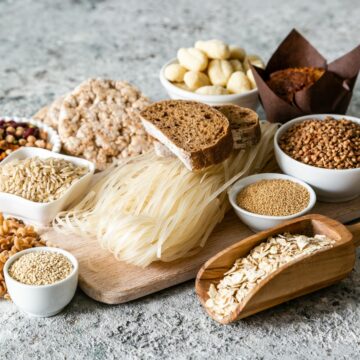When it comes to weight loss and healthy eating, the keto diet is one of the most popular options out there. But while many people have successfully lost weight with the keto diet, there’s a question that often comes up: can you do the keto diet long-term?
In this article, we’ll explore what the keto diet is, how it works, and whether or not it’s a sustainable option for long-term weight loss and health.
What Is the Keto Diet?
The ketogenic diet, or keto for short, is a high-fat, low-carbohydrate diet that puts your body into a state of ketosis. Ketosis is a metabolic state where your body burns fat for fuel instead of carbohydrates. In order to achieve ketosis, you need to drastically reduce your carbohydrate intake and increase your fat intake.
On the keto diet, you’ll typically eat less than 50 grams of carbohydrates per day. This means that you’ll need to eliminate or greatly reduce foods like bread, pasta, rice, and sugar. Instead, you’ll eat foods that are high in healthy fats, like avocados, nuts, seeds, and oils. You’ll also eat moderate amounts of protein, like meat, fish, and eggs.
Can You Do the Keto Diet Long-Term?
The short answer is yes, you can do the keto diet long-term. Many people choose to make the keto diet a lifestyle rather than just a short-term weight loss plan. However, there are some precautions you need to take in order to ensure that you’re doing the keto diet in a healthy and sustainable way.
One of the biggest concerns with long-term keto dieting is that it can be difficult to get all of the micronutrients that your body needs. Since you’re limiting your intake of fruits, vegetables, and grains, you may not be getting enough vitamins, minerals, and fiber. This is why it’s important to pay attention to the quality of the foods you eat on the keto diet.
What Are the Precautions to Take on Long-Term Keto Dieting?
1. Don’t Waste Your Carb Allotment on Unhealthy Foods
When you’re on the keto diet, every gram of carbohydrate counts. This means that you need to be selective about the carbs that you do eat. Instead of wasting your carb allotment on unhealthy foods like candy and soda, focus on eating nutrient-dense foods like vegetables and fruits that are low in carbs.
2. Focus On Eating Quality Fats
Since the keto diet is a high-fat diet, it’s important to focus on eating quality fats. This means avoiding unhealthy fats like trans fats and vegetable oils and instead opting for healthy fats like olive oil, avocado oil, and coconut oil. You’ll also want to eat foods high in omega-3 fatty acids, like fatty fish and flaxseed.
3. Eat Real Food
One of the best ways to ensure that you’re getting all of the nutrients that your body needs on the keto diet is to eat real, whole foods. This means avoiding processed foods and instead opting for foods that are as close to their natural state as possible. Choose grass-fed meats, organic vegetables, and wild-caught fish whenever possible.
4. Pay Attention to Micronutrients
As mentioned earlier, it can be difficult to get all of the micronutrients that your body needs on the keto diet. This is why it’s important to pay attention to the vitamins and minerals that you’re getting from your food. Consider taking a multivitamin or supplementing with specific nutrients like magnesium, potassium, and vitamin D.
Final Thoughts
The keto diet can be a great option for weight loss and overall health, but it’s important to do it in a healthy and sustainable way. By focusing on nutrient-dense foods, quality fats, and real, whole foods, you can ensure that you’re getting all of the nutrients that your body needs on the keto diet. And remember, if you’re considering the keto diet for long-term weight loss and health, it’s always a good idea to consult a healthcare professional before starting any new diet or exercise plan.
Are you ready to get started on the keto diet? Keto Diet Yum is the perfect resource for you! We offer the best healthy keto recipes to help you meet your daily goals! Explore our site and get the knowledge you need — from breakfast to yummy dessert!




